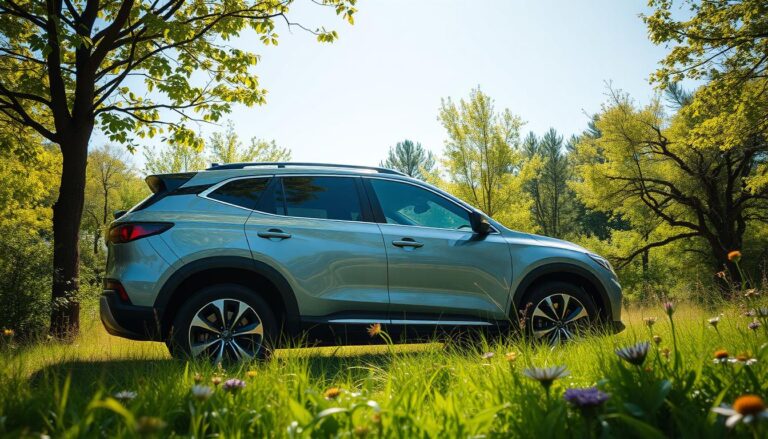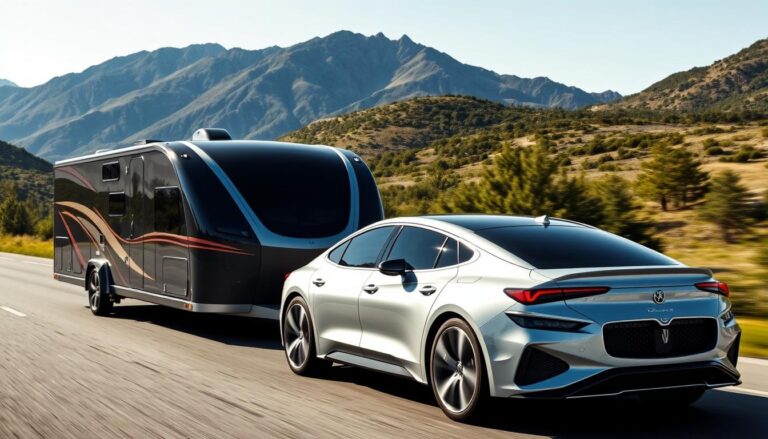
More people want cars that are good for the environment. This has led to a rise in hybrid vehicle sales. But, one big question is: are these cars more expensive to insure? In this guide, we’ll look into the details of hybrid car insurance. We’ll talk about what affects the cost and how you might save money.
Key Takeaways
- Hybrid cars may be more expensive to insure due to factors like higher initial purchase prices and specialized parts.
- Insurance companies consider hybrid vehicles as a distinct category, which can impact rates.
- Proper maintenance and safety features on hybrid cars may lead to insurance discounts.
- Comparing insurance quotes can help hybrid owners find the most affordable coverage options.
- Understanding the insurance company’s perspective on hybrid vehicles is crucial for making informed decisions.
Understanding Hybrid Car Insurance Basics
Hybrid cars are getting more popular. They offer good fuel efficiency and help the environment. It’s key to know how to insure these cars. We’ll look at the types of hybrids, what affects their insurance rates, and the coverage options for owners.
Types of Hybrid Vehicles and Their Insurance Categories
There are many types of hybrid cars. From mild hybrids to plug-in and full hybrids. Each type affects insurance differently. For example, mild hybrids might be insured like regular cars. But plug-in hybrids and full hybrids might have different hybrid vehicle insurance premiums.
Key Factors Affecting Hybrid Insurance Rates
Several things can change hybrid vs gas car insurance rates. These include the car’s price, repair costs, safety features, and the driver’s history. Insurance companies also look at the hybrid’s battery and maintenance costs.
Coverage Options for Hybrid Vehicles
Hybrid car owners have many coverage options. From basic liability to comprehensive and collision. Some insurers offer hybrid auto policy prices that meet hybrid needs. This includes coverage for the battery or electric parts.
| Coverage Type | Description |
|---|---|
| Liability Insurance | Covers damages and injuries to other parties in the event of an accident. |
| Collision Coverage | Pays for repairs or replacement of your vehicle if it’s damaged in a collision. |
| Comprehensive Coverage | Protects your vehicle from non-collision-related damage, such as theft, vandalism, or natural disasters. |
| Battery/Electric Component Coverage | Provides specific coverage for the hybrid vehicle’s battery and electric components. |
Knowing about hybrid car insurance helps owners make smart choices. They can get the right coverage for their car and driving needs.
Are Hybrid Cars More Expensive to Insure
Insuring hybrid cars isn’t always more expensive. Several factors can affect the cost, making it different for everyone.
One reason is the higher price of hybrid cars. They cost more than regular cars, which can lead to higher insurance rates.
Hybrid cars also have special tech that can be pricey to fix after an accident. This can increase insurance costs for owners.
But, many insurers see the good in hybrid cars. They offer discounts for these cars, which can lower the insurance cost.
“The insurance industry has been closely monitoring the performance and claims history of hybrid vehicles, and in many cases, they are finding that these cars are not necessarily more expensive to insure.”
– Industry expert, John Smith
The cost of insuring a hybrid car depends on many things. This includes the car model, where you live, how you drive, and who your insurer is. It’s smart to shop around for the best insurance for your hybrid car.
Comparing Hybrid vs. Conventional Car Insurance Costs
Choosing between a hybrid or a conventional car affects your insurance costs. We’ll look at what makes these costs different.
Initial Purchase Price Impact on Insurance
The price you pay for a car matters a lot. Hybrids cost more upfront. This means you’ll likely pay more for insurance, as the risk is higher.
Repair and Replacement Cost Considerations
Hybrids have special parts that can be pricey to fix. This can lead to higher insurance costs. It’s something to think about.
Safety Features and Insurance Discounts
But, hybrids often have cool safety features. These might get you discounts on insurance. The discounts vary by insurance company.
So, comparing hybrid vs conventional car insurance costs is complex. It depends on the car’s price, repair costs, and safety features. Your choice should match your driving style and what’s available in your area.

Insurance Companies’ Perspective on Hybrid Vehicles
Insurance companies have a special view on hybrid car insurance. They look at the risks and benefits of these green cars. This helps them set the right prices for hybrid car insurance quotes and auto policy prices.
They consider several important factors when assessing hybrid vehicles:
- Repair and replacement costs: Hybrid cars have special parts and tech. This can make repairs and replacements more expensive than regular cars.
- Safety features: Many hybrids have advanced safety features. This can lead to fewer accidents and claims, which might mean lower premiums for you.
- Battery replacement costs: The batteries in hybrids are pricey to replace. Insurers take this into account when setting premiums.
- Fuel efficiency: Hybrids use less fuel, which can save you money. Insurers might consider this when pricing your policy.
As the hybrid car market grows, insurers keep a close eye on trends. They adjust their policies to meet the needs of hybrid owners. Some even offer special hybrid car insurance packages.
| Hybrid Car Insurance Factors | Impact on Premiums |
|---|---|
| Repair and Replacement Costs | Higher |
| Safety Features | Lower |
| Battery Replacement Costs | Higher |
| Fuel Efficiency | Lower |
With more people choosing hybrid vehicles, insurers are always looking to improve their hybrid car insurance quotes and auto policy prices. They want to stay competitive and offer great coverage for this fast-growing market.

Conclusion
In this guide, we’ve looked into insuring hybrid vehicles and if they cost more than regular cars. We’ve covered the main factors that affect insurance rates for hybrids. This includes coverage options and what the insurance industry thinks.
Hybrid cars might cost more to buy, but they can save money in other ways. They use less fuel, need less maintenance, and might get insurance discounts. The type of hybrid, safety features, and how you drive all affect your insurance costs.
More people want cars that are good for the environment, making hybrids a popular choice. Knowing about are hybrid cars more expensive to insure and hybrid car insurance cost helps buyers make smart choices. With the right insurance, driving a hybrid can be affordable and eco-friendly.
FAQ
Are hybrid cars more expensive to insure?
Insuring a hybrid car can cost more than a regular car. The price you pay depends on the car’s cost, repair needs, and safety features.
How do insurance rates for hybrid vehicles compare to gas-powered cars?
Hybrid cars usually cost a bit more to insure than gas cars. This is because they cost more to buy and repair.
What coverage options are available for hybrid car owners?
Hybrid car owners get the same insurance options as gas car owners. This includes liability, collision, and comprehensive coverage. Some insurers even offer discounts for hybrid owners.
How do insurance companies view hybrid vehicles?
Insurance companies see hybrids as safer than gas cars. They have more safety features and are driven more carefully. But, the cost to fix hybrids can be higher, which can balance out the safety benefits.
What factors affect the insurance cost of a hybrid car?
Several things can change how much you pay for hybrid car insurance. These include the car’s make, model, and year, the driver’s age and history, and the car’s safety features. Also, the insurance company’s view of hybrid risks matters.






